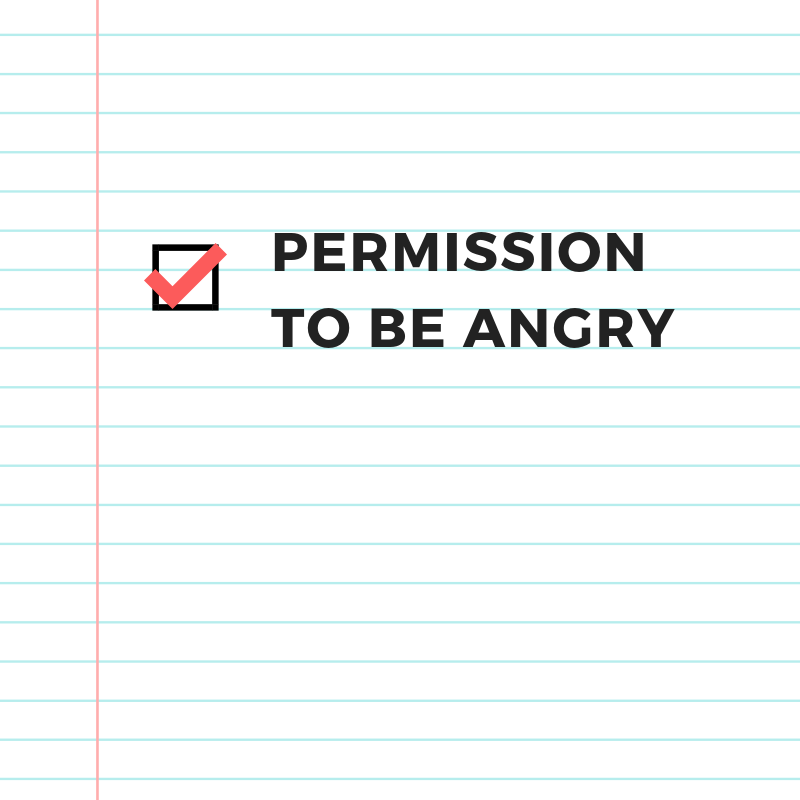I’ve been sabotaged, berated and humiliated on the job. It’s been demoralizing when it’s been a woman who’s done this to me. Especially if she was older and someone I looked up to.
I’ve been frustrated when I’ve been told, “You shouldn’t be angry. This is just the way things are. You’re making others feel uncomfortable.”
I’ve been angry when, after responding to a question which required my opinion, as I sat with male colleagues, I was told my opinion was wrong.
I’ve been infuriated when I’ve worked long and hard on a project requiring collaborating with people who didn’t respect deadlines and then to be yelled at and blamed for, “…not having my act together.”
I get it. It’s ok to be angry.
What’s not okay is lashing out with the same uncontrolled anger. It’s not okay to blame or use words that degrade another person’s humanity. It’s not okay to stifle your anger until it oozes out in the form of passive aggressiveness. It’s not okay to subject your loved ones or people who report to you to a short-temper because you feel it’s the only safe place to release it.
So what do you do?
For Yourself
Be Your Best Friend.
Create a space to let go. Some place no one can judge you. Scream. Yell. Cry. Journal. Journal a lot. Let the anger pour out onto the pages. Don’t edit yourself. Say all the mean, judgmental, true, untrue things that you so desperately want to say. Hold a space for yourself with no judgement like your best friend does for you.
Don’t judge.
Don’t judge yourself. The energy can be better used to soothe yourself. Make yourself a cup of tea. If you have the luxury of a bath tub and loads of hot water, run yourself a bath. Buy yourself flowers or chocolate! Sleep until your body wakes you up instead of the alarm clock. Take care of you to restore your energy.
Acknowledge.
Acknowledge what you are going through. Acknowledge how hard you are working. Acknowledge that you are doing the best you can.
Be Curious.
This is not an interrogation. It is, however, important to ask yourself why you are having this reaction. When you’ve answered it, ask why again. Gently. Learn what underlies the initial frustration, rage and exhaustion.
Get Clear.
It’s not only about getting clear on why you are reacting the way you are, you’ve gotta get clear about your boundaries – what’s not okay and what is. You may feel you know it but you would be surprised to see what comes out when you allow yourself to purge the thoughts in your head to paper. When you’re done, look at the list and what it reveals about what you really want and value in terms of boundaries. Knowing this will help you for the next time your boundaries are tested.
With the Others
Get Curious.
What underlies the aggression? Is someone trying to be powerful over you because they feel powerless? Is someone recycling a lack of acknowledgement because they are not being acknowledged? Getting curious will give you answers on how to move forward. It will help you stay clear of disrupters or speak to underlying needs.
Acknowledge to be heard.
If you want to be acknowledged, people need to be heard first. Notice what happens when you acknowledge what they say. Remember, acknowledgment is not agreement. Acknowledgement is demonstrating you have really heard what they are saying and they feel it. When you actively listen and repeat back what you have heard, people are more likely to listen to what you have to say.
Practice Silence.
Silence is viewed by many as a weakness but it is a powerful tool. Being silent while the other person is speaking, especially if they are in attack mode, can be difficult. Practicing being present and listening not only to words and tone but what is not being said is valuable. There is so much to learn in the silence. It can help determine how to speak to the other person’s underlying interests in a way that benefits everyone. It also creates the space for reflection and clarity.
Assume the Best.
Few people wake up and actively think: I’m going to be a jerk today! Most people are doing the best they can. Assume the person is working from their best selves. It will provide more perspective on the situation and most likely create empathy. This, in turn, will shift the way you show-up. People can feel anger, sadness, fear and empathy better than they can hear what it being said.
You are allowed to feel anger. If you don’t feel it through you will feel the symptoms like:
Anxiety
Insomnia
Chronic illness
Chronic pain
Exhaustion
Disconnection
Isolation
So, what’s one action you can take from the steps above? Leave a comment below on what you have done to release your anger in a healthy way.
Remember, take baby steps. Start with yourself first.
As well, be gentle with yourself. You’re doing the best you can.
A nod of respect from me to you.
You are taking the time and investing your energy in something worthwhile;
To be empowered to make a difference!

N.B.
One-on-One Coaching
Do you feel like you could use some more support? Learn more about one-on-one coaching packages, the Building Healthy Work Relationships coaching session or e-mail me if all you need is a One ‘n Done coaching session.
Workshops & Speaking Engagements
Has this post got you thinking your team could use a workshop or speaker? A conflict resolution trainer and coach who could provide guidance on how to communicate and respect with each other? How to be mindful of unconscious biases and power dynamics? Send an e-mail and let’s find a time to discuss your team’s needs! joann.o.rodrigues@gmail.com

